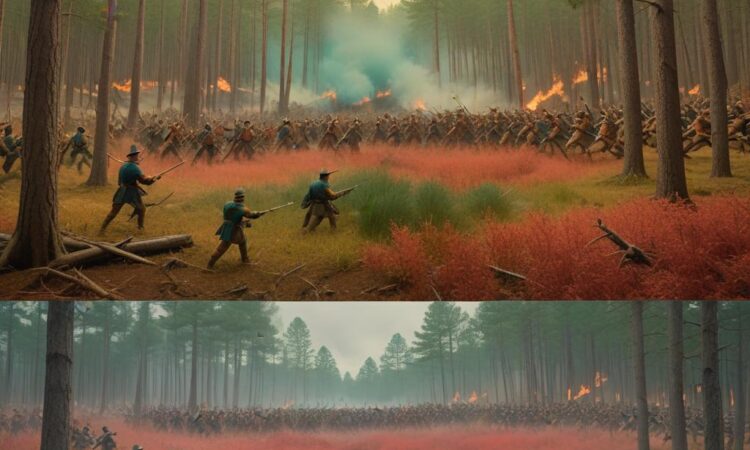The Controversy Surrounding “Celestial Echoes”: A Deep Dive
Okay, folks, let’s talk about “Celestial Echoes.” This newly released flick has become the popcorn-fueled epicenter of a pretty hefty debate, and honestly, it’s a wild ride. The main source of the kerfuffle? The film’s portrayal of the legendary Battle of Whispering Pines – a historical event shrouded in enough mystery to fill a thousand documentaries, and now, apparently, a blockbuster movie.
Now, I’m not a history professor, but even *I* could see some… creative liberties taken with the timeline and the motivations of some key players. Some historians are throwing their metaphorical (and possibly real) teacups at the screen, accusing the filmmakers of blatant historical inaccuracies and a serious lack of sensitivity. Others are saying, “Hey, it’s a movie! Lighten up!” and that’s where things get really interesting.
The film’s director, Anya Petrova, has defended her choices, claiming she aimed for a “bold reimagining” of the event, focusing more on the emotional impact than strict adherence to historical facts. She argues that art should provoke discussion and challenge our perceptions, and that this controversial portrayal is precisely what makes “Celestial Echoes” such a compelling piece of cinema.
But the debate goes beyond just historical accuracy. There’s a whole other layer to this onion of controversy: the film’s visual effects. The CGI, while undeniably impressive in certain shots, has also been criticized for being overly polished and distracting, sometimes overshadowing the human drama unfolding on screen. Some critics have even compared it to a digital paint-by-numbers, lacking the subtlety and realism that would truly elevate the storytelling.
And then there’s the whisper campaign circulating online – allegations of plagiarism. Several smaller independent filmmakers are claiming that “Celestial Echoes” borrows heavily from their own work, both visually and narratively. Petrova and her team have vehemently denied these accusations, but the evidence presented – screenshots, story outlines, and timing – is proving hard to ignore. It’s a real “he said, she said” situation, fueled by social media outrage and a healthy dose of speculation.
So, where does this leave us? In the messy, exciting, and occasionally frustrating heart of a cultural clash. “Celestial Echoes” isn’t just a movie; it’s a conversation starter, a lightning rod for opinions, and a testament to the power of cinema to both entertain and enrage in equal measure. Is it a masterpiece or a travesty? The answer, like the Battle of Whispering Pines itself, seems shrouded in mist and open to interpretation.
Ultimately, whether you see “Celestial Echoes” as a groundbreaking work of art or a cynical exploitation of history is entirely up to you. One thing is certain, though: It’s not a film you can easily ignore. The questions it raises about artistic license, historical responsibility, and the ethics of filmmaking are far more significant than any individual opinion on its artistic merit. This is a movie that’s going to keep sparking debate for weeks, months, even years to come. And, hey, isn’t that what great cinema is all about?
This is just the beginning of the conversation. What are *your* thoughts on the controversy surrounding “Celestial Echoes”? Let us know in the comments below!
The ensuing debate has even spilled over into more academic discussions, with film scholars weighing in on the complexities of historical representation in popular cinema and the implications of artistic freedom in the face of public outcry. The ongoing discussion is a valuable exploration into the intersection of art and ethics, and how both shape our understanding of the world around us. The controversy also highlights the importance of critical engagement with media, encouraging viewers to be more discerning and reflective consumers of the stories presented to them.
This multi-layered conflict demonstrates the powerful impact that a single film can have on our society. It’s a testament to the enduring power of storytelling, and a stark reminder of the responsibilities that come with wielding that power. “Celestial Echoes” may not have the answer to every question it raises, but it certainly has sparked a dialogue that is essential to have in today’s complex media landscape. And let’s be honest, that’s a pretty big deal.
So, grab your popcorn, settle in, and prepare to be challenged. The controversy surrounding “Celestial Echoes” is far from over, and the ongoing conversation is only just beginning. Prepare to engage.

